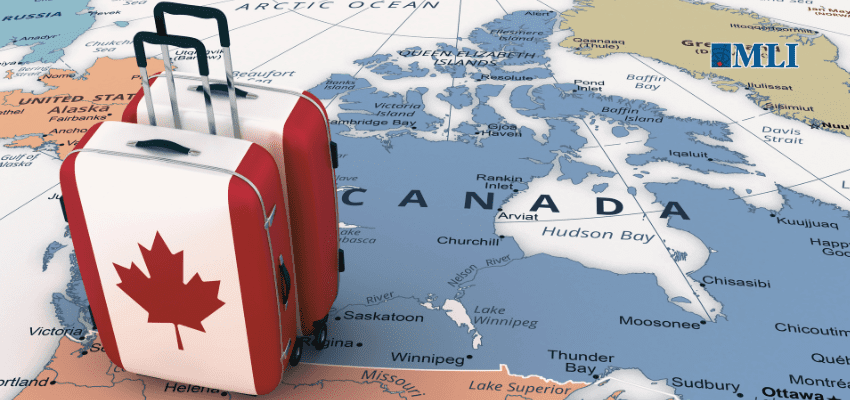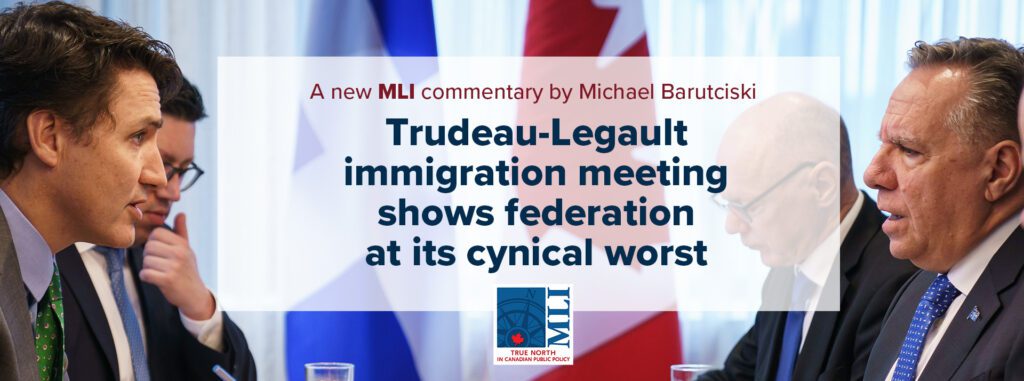This article originally appeared in the Globe and Mail.
By Michael Bartuciski, December 16, 2024
Canadian authorities are preparing for a wave of unauthorized border crossings by migrants fleeing tough immigration measures from the Trump government, and early reports from Quebec media are suggesting that attempted crossings from upstate New York are already on the rise. While increasing border security is part of the solution, Canada should also look at closing a loophole in our border agreement with the U.S. that could be incentivizing illegal migration.
As a responsibility-sharing treaty between Canada and the U.S., the Safe Third Country Agreement (STCA) was intended to prevent asylum shopping. Refugee claimants are required to request protection in the first safe country they arrive in, and as the U.S. is considered by Canada to be safe, migrants can be sent back there. It initially applied only at official ports of entry, which is how the problem at Roxham Road developed: large numbers of migrants entered through unofficial crossings in rural Quebec and were allowed to present asylum claims. The Biden administration eventually agreed to an amendment that extended the STCA across the entire land border, not just official crossings, thereby effectively closing Roxham Road.
Astonishingly, at the same time, Justin Trudeau’s Liberals relaxed visa requirements and made it easier for people who would normally have difficulty obtaining tourist visas to enter legally and then claim asylum upon arrival. This quiet waiving of decades-long visa policy explains why Canada continued to receive record numbers of asylum claims despite the closing of Roxham Road. The main difference with these new claims was that they were mostly made at the international airports in Toronto and Montreal. With the apparent tightening of visa policy over the past few months, recent statistics suggest asylum claims are increasingly being made in urban centres by temporary residents who have already entered, or migrants without legal status.
The inclusion of the 14-day rule (or loophole) in the amended STCA is another example of Ottawa’s tendency to favour laxness and administrative expediency. This rule allows migrants who enter Canada clandestinely to claim asylum if they evade the authorities for two weeks. The government has not been upfront about the rationale for this change. The only logical explanation is that it provides a fixed timeline so that border authorities do not have to search indefinitely for migrants who entered illegally. After all, we can assume most are residing in so-called “sanctuary cities” such as Toronto and Montreal, thereby complicating efforts to find them.
Given Donald Trump’s deportation threats, Ottawa should negotiate to get this 14-day rule removed. Canada could decide to unilaterally suspend the whole STCA, but that would be counterproductive because it would mean there was no longer a responsibility-sharing treaty in effect between our two countries. We would then have to examine all asylum claims regardless of how claimants entered. Also, Article 10 of the STCA stipulates that the temporary suspension of any part of the treaty requires the U.S. to agree, so Canada could not unilaterally suspend the 14-day rule, for example.
A diplomatic strategy allowing a mutually beneficial deal is needed. Ottawa will have to offer the U.S. something in return and it would be sensible to link this issue to something we know our continental partner wants: a commitment to better control migrants illegally crossing in the opposite direction, from Canada to the U.S. Our enthusiasm in expanding the co-operative continental approach can be further emphasized by offering to help the U.S. with its southern border problem, as we have done in the past.
The big picture for policymakers is that Canada under the Trudeau Liberals has become an outlier among Western democracies. With its lax visa policy, incomparably high refugee-status recognition rates and reluctance to remove failed claimants, Canada now serves as a global magnet for masses of people seeking better conditions. The number of monthly asylum claims in our geographically isolated country rivals Germany, the largest EU host country. It is exceeding the other leading EU host countries, namely France, Spain and Italy. Even if adjudication procedures could be streamlined and additional funding could magically appear to address the massive backlog, the current intake is simply unsustainable.
To correct this distorted approach to asylum, which used to be a historic concept focused on protecting victims of individualized persecution, future Canadian policy needs to emphasize co-operation and harmonization with our Western partners. This more realistic approach has to develop alongside our closest ally, which shares our long, undefended border, as well as the same continental security concerns. Eliminating the 14-day rule is a logical place to start.
Michael Barutciski teaches at the Glendon School of Public and International Affairs at York University. He is also a senior fellow at the Macdonald-Laurier Institute.







